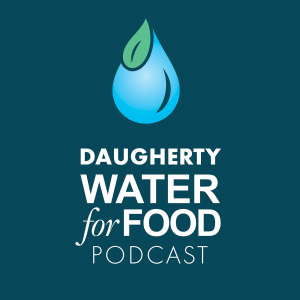 Drought is a prolonged dry period that can occur anywhere in the world and results in a water shortage. Unlike some other disasters, drought has a slow onset and a prolonged impact on health, agriculture, economies, energy and the environment.
Drought is a prolonged dry period that can occur anywhere in the world and results in a water shortage. Unlike some other disasters, drought has a slow onset and a prolonged impact on health, agriculture, economies, energy and the environment.
An estimated 55 million people globally are affected by droughts every year and as many as 700 million people are at-risk of being displaced as a result of drought by 2030. As of June 4, 2024, more than 10 percent of the U.S. is experiencing a drought, according to the U.S. Drought Monitor. In fact, drought is one of the costliest and deadliest climate-related disasters in the United States.
In this episode of the Water for Food Podcast, DWFI Director of Communications and Public Relations Frances Hayes chats with experts in drought and health who shed light on this complex topic, including the areas of respiratory concerns, stress among farmers, engagement with the public health community through the Drought and Public Health Roadmap and a global public health perspective. Guests include Dr. Yeongjin Gwon, Rachel Lookadoo, JD and Dr. Jesse Bell of the University of Nebraska Medical Center and affiliated with DWFI, as well as Dr. Jesse Berman of the University of Minnesota School of Public Health.
If you or a loved one is experiencing or affected by a mental health, substance use, or suicidal crisis, please call or text “988” (or chat online on the 988 Suicide & Crisis Lifeline website) for free, confidential, and immediate help.
Listen here or subscribe on your favorite podcast platform:
DWFI podcast episode 36 35:37
The Robert B. Daugherty Water for Food Global Institute (DWFI) at the University of Nebraska was founded with the mission to have a lasting and significant impact on achieving more food security with less pressure on scarce water resources by conducting scientific and policy research, using the research results to inform policy makers, and sharing knowledge through education and communication.
How to subscribe:
